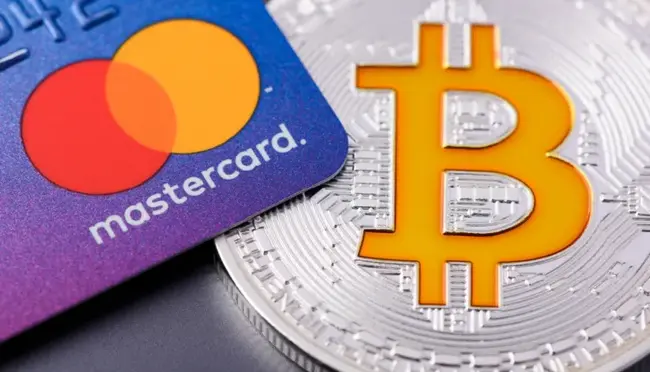Highlights:
- Mastercard taps Polygon to introduce verified usernames for self-custody wallets, enhancing transfer reliability.
- Polygon’s low fees and high throughput ensure fast, secure blockchain transfers for verified users.
- Mercuryo handles identity verification for Mastercard’s new crypto transfer system, reducing errors.
Mastercard, a leading payments network, is expanding its digital assets services by tapping Polygon to make cryptocurrency transactions easier. The partnership is setting up a system that allows users to transfer crypto by referring to their verified usernames instead of the traditional, complex wallet addresses. This transition deals with one of the prime issues in the cryptocurrency domain, that is, the long wallet addresses, which are frequently a source of costly mistakes in transferring assets due to their complexity.
The Mastercard Crypto Credential introduces a uniform technique for the validation of blockchain addresses, creating aliases that can be read by humans and are related to verified individuals. Raj Dhamodharan, Mastercard’s Executive Vice President for Blockchain & Digital Assets, has pointed out the significance of the shift.
He said:
“The streamlining of wallet addresses along with the provision of meaningful verification by Mastercard Crypto Credential is building trust in digital token transfers.”
Big news:@Mastercard chooses Polygon to launch username-based transfers for self-custody wallets, with @mercuryo_io. pic.twitter.com/p0aTlP7wdp
— Polygon (@0xPolygon) November 18, 2025
Simplifying Crypto Transfers with Verified Aliases
Crypto payment API company Mercuryo is at the center of the operation by authenticating the users and providing their names. After the identity verification is completed, the users can connect the aliases to their self-custody wallets. This process is similar to the traditional payment systems such as Venmo or PayPal, which makes it user-friendly for new users.
Users will be able to request a Mastercard Crypto Credential soulbound token on Polygon. This consequently indicates that their wallet is confirmed and ready to conduct transactions based on the credential.
This breakthrough reduces the loss of transactions that are usually associated with the manual entry of long wallet addresses. Instead of typing out a long string of hexadecimal characters, users can now send and receive crypto with ease by employing a simple, unique identifier. As a result, the human-readable format will speed up, simplify, and secure transactions.
The Role of Polygon in Powering the System
Mastercard tapped Polygon due to its scalability and speed, thus ensuring the system’s seamless and efficient operation. Polygon’s network is perfect for real-time payments at a large scale since it handles high throughput and low transaction costs. The network has undergone some upgrades recently. This includes Rio and Heimdall v2 releases that have particularly enhanced their finality, minimized reorganization risks, and increased the number of transactions.
These enhancements strengthen Polygon’s position as an infrastructure partner for the implementation of Mastercard’s verified username system. Polygon’s blockchain is capable of processing large amounts of US-stablecoin transfers. Moreover, it contributes to the growth of the ecosystem of fintech companies and payment processors.
Raj Dhamodharan further added that,
“When the potential of Mercuryo and Polygon is combined with our infrastructure, digital assets become more accessible. this gesture. With this move, Mastercard reinforces its commitment to providing secure, easy-to-use, and scalable blockchain experiences to the global market.”
Recent Partnerships Highlight the Broader Crypto Push
Mastercard’s decision to tap Polygon comes after its collaboration with Chainlink to give its 3 billion cardholders easier access to crypto. The partnership grants Mastercard customers the option to buy crypto through Chainlink’s safe interoperability tech. The program’s objective is to eliminate the fiat-crypto divide and thus, to further digital assets’ mainstream adoption.
We’re excited to announce that Chainlink and @Mastercard have partnered to enable billions of cardholders to purchase crypto directly onchain.https://t.co/1pKz03jQ7t
Chainlink verifies and synchronizes key… pic.twitter.com/5jfLAAYn4D
— Chainlink (@chainlink) June 24, 2025
In addition, Mastercard is in the final stages of acquiring Zerohash, a crypto infrastructure provider. This potential acquisition is estimated to be between $1.5 billion and $2 billion. If successful, it would enable Mastercard to deepen its presence in blockchain-based settlements and also broaden its digital asset capabilities.
Best Crypto Exchange
- Over 90 top cryptos to trade
- Regulated by top-tier entities
- User-friendly trading app
- 30+ million users
eToro is a multi-asset investment platform. The value of your investments may go up or down. Your capital is at risk. Don’t invest unless you’re prepared to lose all the money you invest. This is a high-risk investment, and you should not expect to be protected if something goes wrong.






